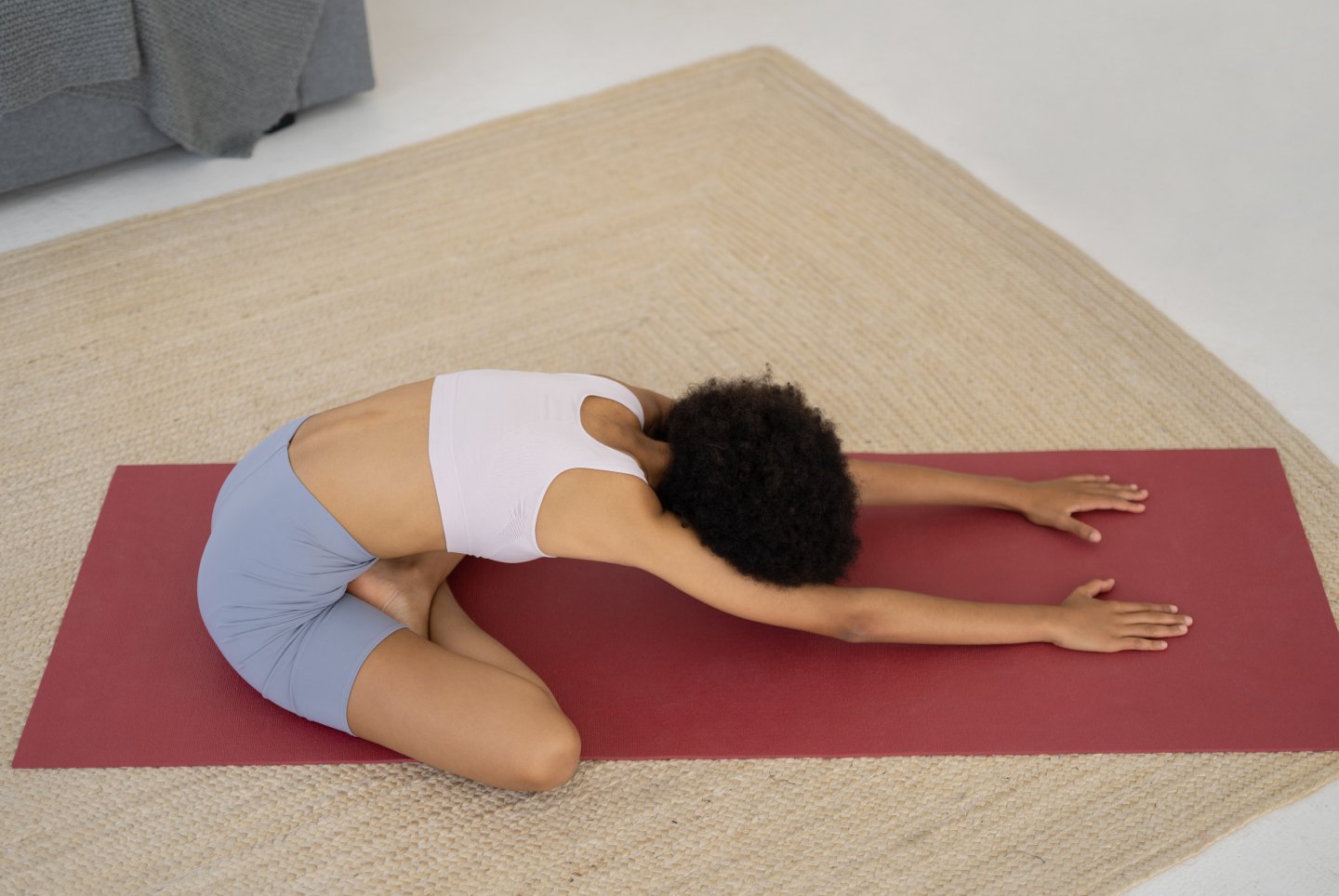30 Minute Bedtime Unwind
1. Activates the Relaxation Response
Yoga shifts your body from the sympathetic nervous system ("fight or flight") to the parasympathetic nervous system ("rest and digest"). Gentle poses combined with slow, deep breathing signal to your brain that it's safe to relax, helping lower heart rate, blood pressure, and cortisol (stress hormone) levels—priming your body for sleep.
2. Releases Built-Up Tension and Stress
Throughout the day, stress accumulates in your muscles—especially in the shoulders, hips, and lower back. Evening yoga gently stretches these areas, easing physical tightness that can cause restlessness or discomfort when lying down. As your body relaxes, so does your mind.
3. Quiets the Mind and Reduces Anxiety
Yoga incorporates mindfulness and breath awareness, which help quiet racing thoughts, ease anxiety, and reduce mental overstimulation—the top culprits behind trouble falling or staying asleep. Practices like yoga nidra or extended savasana can be as effective as meditation for calming an overactive mind.
4. Supports a Consistent Sleep Routine
Doing yoga at the same time each evening builds a consistent wind-down ritual. This signals to your body and brain that it’s time to shift gears from activity to rest, improving sleep onset and quality over time—especially helpful for those with insomnia or irregular schedules.
5. Enhances Melatonin Production
Gentle evening movement and breathwork support your body’s natural circadian rhythm and help trigger melatonin production (the sleep hormone), making it easier to fall asleep naturally—without relying on sleep aids or screens.
A calming bedtime yoga routine isn’t just about flexibility—it's a science-backed way to prepare your body and mind for deep, restorative sleep.



